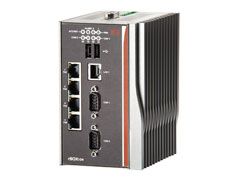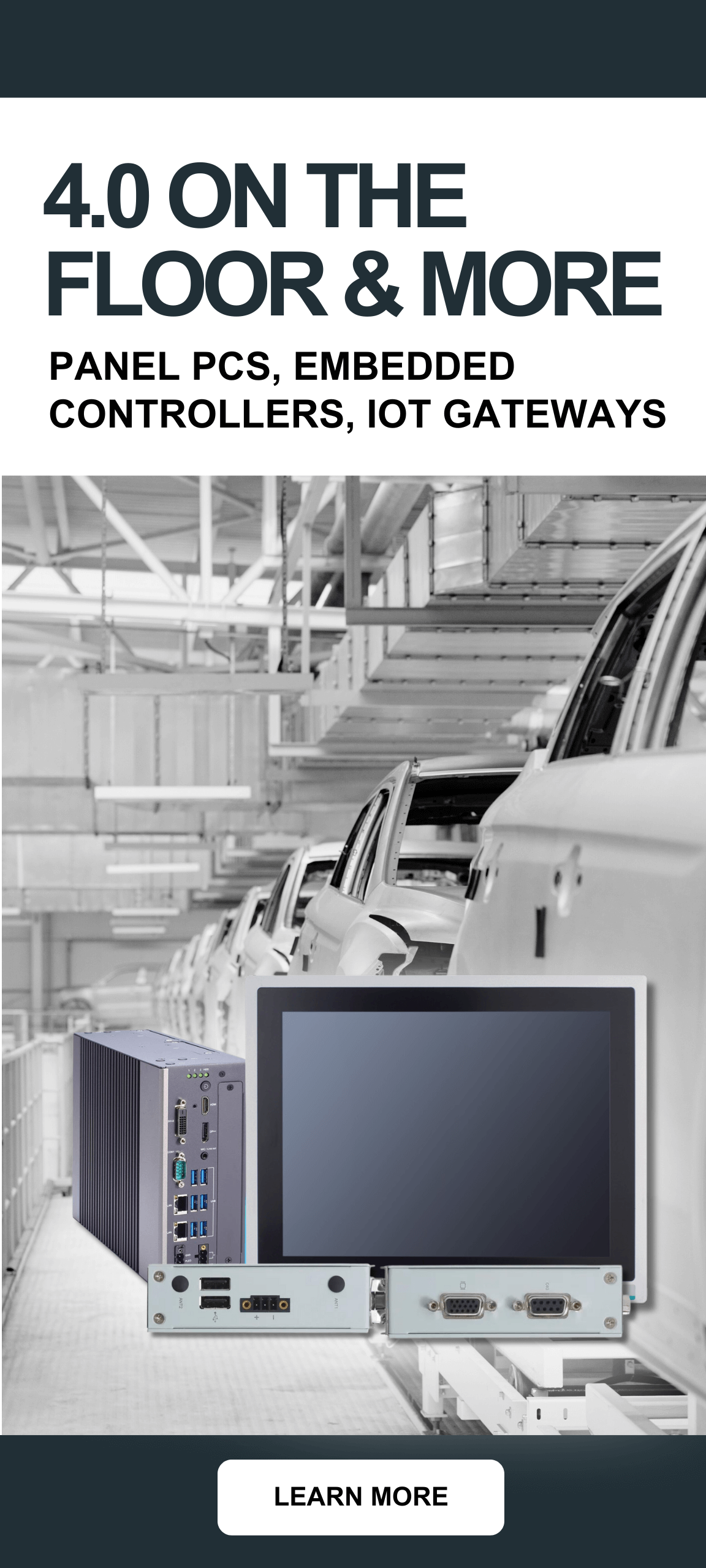
Benefits of an Embedded Industrial Computer
Blog
 The embedded industrial computer plays a crucial role in the fields of pharmaceutical, medical, food and service industries, and the military, to name only a few. Here’s a closer look at some of the superior advantages that embedded industrial computers have over their general purpose counterparts.
The embedded industrial computer plays a crucial role in the fields of pharmaceutical, medical, food and service industries, and the military, to name only a few. Here’s a closer look at some of the superior advantages that embedded industrial computers have over their general purpose counterparts.
- Low Power Functionality – High-grade industrial computers are equipped with the latest in low-power processor technology, such as Intel Atom or AMD, and streamlined to ensure that power consumption is kept at a minimum without sacrificing the functionality and performance quality of the product. High powered embedded processors, such as Ivy Bridge are also making headway in reducing power consumption as well.
- Performance efficiency – In an embedded industrial computer, there is generally a single function for that device. For example, an embedded industrial computer for a traffic signal matrix has the hardware and software dedicated to the proper functioning of that particular purpose alone; hence there is an optimization of what the product can do.
- Longer product life cycle – For most embedded industrial computers, the regular life span of a model is estimated at approximately five to seven years. Manufacturers design their boards with long life chipsets, assuring that the unit is meant to last.
- Customizable features – Compared to general-purpose computers, which have an array of basic functions and features that cater to most needs, an embedded industrial computer has two main functions. These are data collection, and control and operation of industrial equipment through the specialized software developed by the OEM.
 With either one of these purposes in mind, nearly anything can be done with the hardware, then the OEM can further customize the unit to accommodate the needs of their particular industry or job by installing their proprietary software.
With either one of these purposes in mind, nearly anything can be done with the hardware, then the OEM can further customize the unit to accommodate the needs of their particular industry or job by installing their proprietary software.
As a related point, where opening a consumer, general purpose computer completely voids its warranty, embedded industrial computers have no such limitations, and their warranties allow for these things. This makes on-site repairs and service calls feasible.
- Durability – Many embedded industrial computers are used directly in factories and other harsh environmental settings which may not only expose them to harsher conditions, but also involve situations of rough handling for these electronics.
Embedded industrial computers, depending on their use, are built to withstand fairly severe environments. They can be made to absorb stationary shocks or falls, remain functional even when in transfer via vehicles and protected from exposure to moisture and dirt such as by conformal coating of the motherboard.
- Product reliability – Given that an embedded industrial computer is potentially exposed to harsh conditions, and is certainly relied upon to accomplish its task without failure, manufacturers will often add certain features such as an SSD, for fast, reliable data storage, a watchdog timer, or design it for fanless operation to eliminate the risk of failure due to moving parts or overheating. These benefits can be further compounded by installing reliable software, such as Linux.
 Brian Luckman is the President of New Era Electronics. He has worked in the industrial OEM market for over 25 years, serving a variety of different industries, gaining a strong reputation for his expertise and a thorough understanding of how to properly service OEM customers. In 2000 he began New Era Electronics and the company continues to grow. He’s a husband and father and enjoys exploring the outdoors.
Brian Luckman is the President of New Era Electronics. He has worked in the industrial OEM market for over 25 years, serving a variety of different industries, gaining a strong reputation for his expertise and a thorough understanding of how to properly service OEM customers. In 2000 he began New Era Electronics and the company continues to grow. He’s a husband and father and enjoys exploring the outdoors.
Creative Commons Attribution: Permission is granted to repost this article in its entirety with credit to New Era Electronics and a clickable link back to this page.




